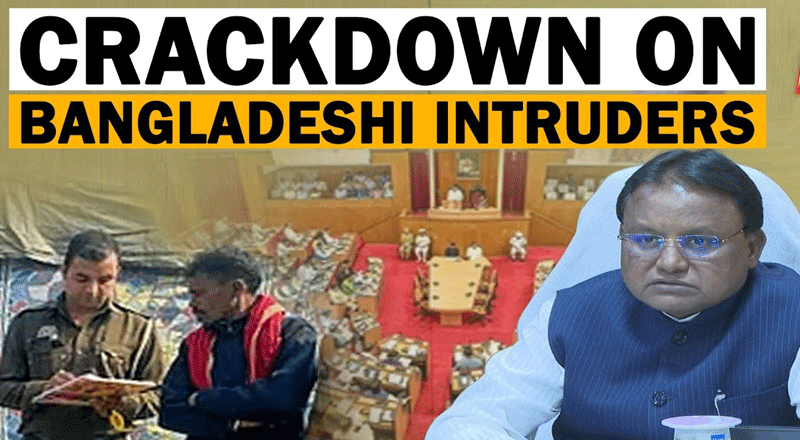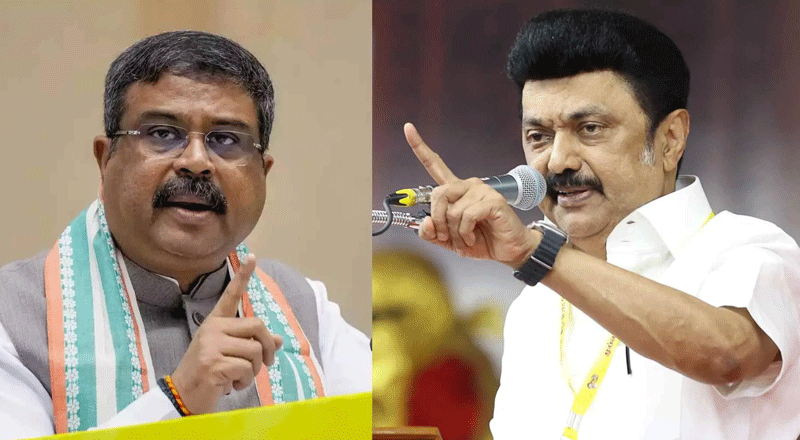In an unprecedented political move, the opposition INDIA bloc has submitted a notice in Rajya Sabha to remove Vice President Jagdeep Dhankhar from his role as the ex-officio chairman of the Upper House. This motion, led by Congress and backed by multiple opposition parties, alleges partisan behaviour by Dhankhar in his conduct during parliamentary proceedings. The move has ignited a fierce debate over parliamentary democracy, impartiality, and political strategy.
The No-Confidence Motion Explained
The INDIA bloc’s notice, spearheaded by Congress MPs Jairam Ramesh and Naseer Hussain, accuses Vice President Dhankhar of failing to maintain impartiality in his capacity as the Rajya Sabha chairman. This marks the first instance of such a motion targeting a vice president. According to parliamentary rules, a 14-day notice must precede any discussion of the motion, which also requires approval by the Deputy Chairman to proceed.
Despite this procedural framework, the opposition lacks the numerical strength to pass the motion in the 243-member House, raising questions about their underlying intentions.
Government and BJP’s Response
Union Minister Kiren Rijiju criticized the motion as “extremely regrettable,” defending Dhankhar’s professional and impartial conduct. Rijiju emphasized the government’s pride in the vice president, portraying him as a leader who upholds democratic values.
Echoing this sentiment, BJP MP Dinesh Sharma dismissed the motion as baseless, accusing the opposition of disrupting parliamentary proceedings. He noted that the allegations of partisanship are unfounded, citing instances where Dhankhar demonstrated respect for both opposition and treasury benches.
Sharma further argued that the constitutional provisions do not allow a no-confidence motion against the vice president, although an impeachment motion under Rule 67(b) could be considered in cases of constitutional violation. In this scenario, Sharma asserted that Dhankhar’s conduct had been beyond reproach, adding that the opposition’s notice seemed aimed more at political posturing than genuine grievance.
Opposition’s Justification
For the INDIA bloc, the motion represents a “painful but necessary” step to safeguard parliamentary democracy. In a statement, Jairam Ramesh described the decision as an inevitable response to Dhankhar’s alleged bias during heated parliamentary sessions. The bloc’s notice was signed by 60 MPs from major opposition parties, including the Congress, RJD, TMC, CPI, CPI-M, and others. They view the motion as a symbolic protest against what they perceive as an erosion of democratic norms under Dhankhar’s chairmanship.
Political Ramifications
This development underscores the deepening rift between the ruling BJP and the opposition INDIA bloc. While the opposition portrays the motion as a fight for democratic values, the government and BJP dismiss it as a mere strategy to stall parliamentary business.
Critics argue that the opposition’s lack of numbers to ensure the motion’s success undermines its credibility, turning it into a symbolic act rather than a meaningful challenge. Conversely, supporters of the motion contend that it sends a “strong message” about their commitment to parliamentary oversight and accountability.
The INDIA bloc’s motion against Vice President Dhankhar reflects a growing political polarization within India’s parliamentary framework. While the motion is unlikely to succeed due to numerical constraints, it highlights the opposition’s strategy to challenge the BJP-led government’s dominance. The controversy raises broader questions about impartiality in constitutional roles and the health of parliamentary democracy in a highly charged political climate. Whether this move fosters meaningful debate or exacerbates partisan divides remains to be seen.
(With inputs from agencies)





